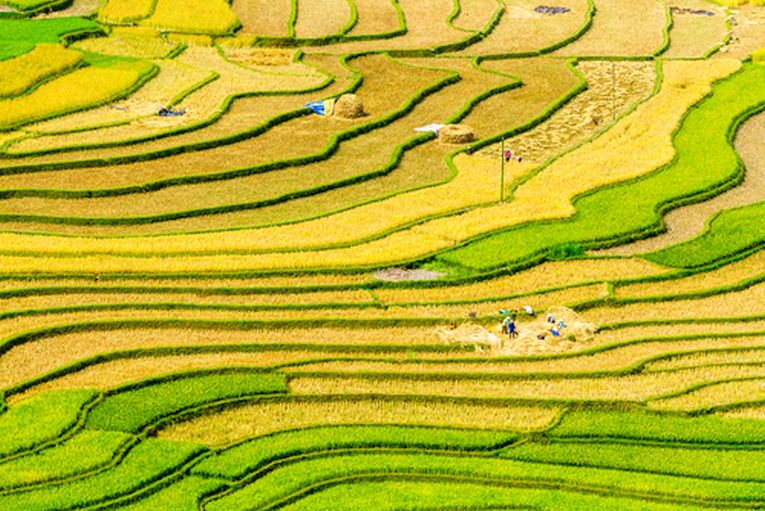Hebie is a Chinese province that is being progressive. They call it bioremediation, but essentially, the new idea is to treat soil that is affected by waste with degrading bacteria such as Dehalococcoides and other microorganisms. Many other Chinese provinces are also involved as the revitalised paddy fields have proved able to produce crops. Only 85% of contaminants and salt are removed, but this seems sufficient, for plants at least.
The worst pollution at the moment in China is caused by heavy metals: cadmium, mercury and copper, associated also with arsenic, contaminating 50 million hectares. The microbes are able to fix these poisons so that they are not available to plants, and reside in the soil just like the miniscule amounts in rock. With many farms closed down for this treatment, there must be worries that the treatment will work in the long-term, after flooding or if other bacteria reverse the process. However, the companies involved are in most cases capable of this bioengineering.
Earth Times is having a close look at the secretive technology. The closest we have is the rock-breathing bacterium, that can be used for this kind of function, although it is better known for oil spill clean-ups. It is related to iron bacteria, sulphur bacteria, nitrogen bacteria and other chemosynthesisers.
Farm production will rise by between 15 and 80% if the crops can be safely eaten. Even more land from oil-spill pollution could also be recovered in a similar way. Even there, though, there have been concerns that enough time needs to pass before bioremediation effectively removes enough toxins from the environment. New Zealand vets have reservations about food safety there, following oil contamination. With 12 million tonnes of rice and other staples polluted each year, the highly toxic heavy metals pouring into the Yangzi and other rivers also have to be stopped, of course.
The Chinese vice minister of land and resources, Wang Shiyuan, said that 3.3 million hectares of arable land is contaminated land, in grain-producing areas. We just hope he’s willing to eat all his rice from there, when it is declared safe for human consumption.










